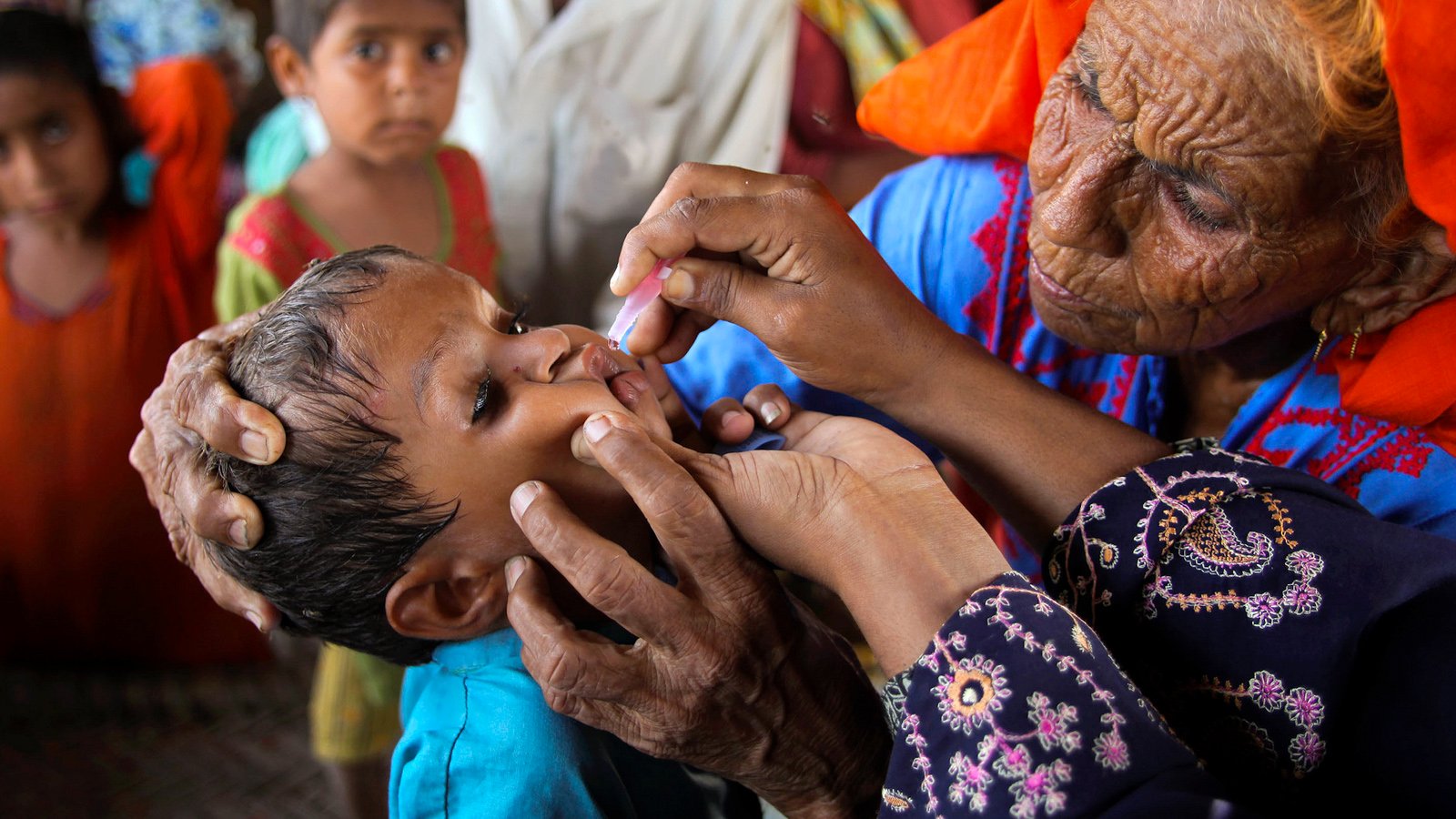Abdul Hassan* emerged recently from the district hospital in Bannu, just outside North Waziristan, clutching his toddler son and niece. Their 100km bus ride from Miranshah, the administrative centre of North Waziristan, was well worth it, he said, because he was able to get the children vaccinated.
“The children have received polio drops, which they had not received for over a year, and that is a relief,” he told IRIN.
Militants in the area banned all polio vaccinations in June 2012, to protest the killing of civilians by drones.
Around “200,000 children have been missed [by polio immunization drives] as a result of the ban in North and South Waziristan”, said Mazhar Nisar, health education adviser at the Prime Minister’s Polio Monitoring and Coordination Cell in Islamabad.
He said this “of course meant greater chances of the virus spreading and endangering more children.”
Despite eradication efforts, polio remains endemic in Afghanistan, Pakistan and Nigeria.
Battling the ban
The government is trying a carrot-and-stick approach to get the ban reversed.
“We are making what efforts we can to bring [the ban] to an end, so the anti-polio campaign can resume,” said Fawad Khan, health director at the Federally Administered Tribal Areas (FATA) Secretariat in Peshawar.
Nisar told IRIN that the Governor of Khyber Pakhtunkhwa (KP) Province, officials at the FATA Secretariat and the political agent - a representative of the federal government - in North Waziristan were “all attempting to talk to tribal elders and sort out matters so anti-polio drives could resume.”
In addition to the negotiations, they are also using colonial-era legislation to impose collective punishment on the areas.
In December 2012, using powers available to him under the Frontier Crimes Regulation of 1901, the political agent for North Waziristan put in place measures that included denying tribal people of North Waziristan passports, national identity cards and other official documentation if community leaders don’t overturn the ban.
A small honorarium to tribal elders was also stopped and development work in some areas has been suspended.
The steps were taken after the Wazir and Dawar tribes declined to back the anti-polio programme, Political Agent Siraj Ahmed Khan said.
Militants had also imposed a polio vaccination ban in South Waziristan but Nisar said this had since been “somewhat relaxed.”
So far, the government’s tactics in North Wazirstan have not led to a relaxation of the unofficial community ban.
Parents act to protect their children
“Our children are still not receiving drops. We are scared for them,” Amina Bibi*, from near Miranshah, told IRIN.
Bibi said she had seen “adults who had suffered polio,” and “was scared of what could happen if the children are not protected.”
Other parents with similar concerns are taking matters into their own hands.
Some “take their children to larger towns like Peshawar or Bannu to receive the polio drops”, said journalist Ayesha Hasan. Peshawar is about 285km from Miranshah.
“My infant son is too young to travel, so I went to Bannu and brought back some vaccines. Doctors there put it in a plastic bottle, packed ice around it and I hid it in a tin of dried milk,” Hazir Gul*, 30, told IRIN.
“They told me how to give the drops, and I also brought home enough for two neighbours with small children,” he said. “I was really scared the militants would discover what I was doing.”
Javed Khan, who works at a clinic in Peshawar, the capital of KP province, told IRIN, “At least a dozen or so families have come to me over the past six months or so and taken vaccine home.”
Distrust, misinformation
An administrative official in Miranshah, who asked not to be named, said, “Yes we know parents are bringing in vaccine. They are desperate, and we try to help discreetly.”
These actions take considerable courage as they expose the parents to potential violence from the anti-polio vaccine militants. The militants in North Waziristan have campaigned vigorously against the polio vaccine, and, according to Hasan, “planted in the minds of people the idea that it may be harmful for their children in some way.”
She said that even people who had previously served as polio immunization workers have voiced suspicions that the vaccine could affect reproduction or be harmful in other ways.
A polio vaccination centre in Bannu District, close to the border of North Waziristan, is a popular choice for parents hunting for the vaccine.
But, as Gul said, “It is not easy to move long distances with children, and the militants could find out where we are going.” He added, “So far whatever measures the government is taking seem to have had no impact here.”
*not real names
kh/jj/rz
This article was produced by IRIN News while it was part of the United Nations Office for the Coordination of Humanitarian Affairs. Please send queries on copyright or liability to the UN. For more information: https://shop.un.org/rights-permissions





